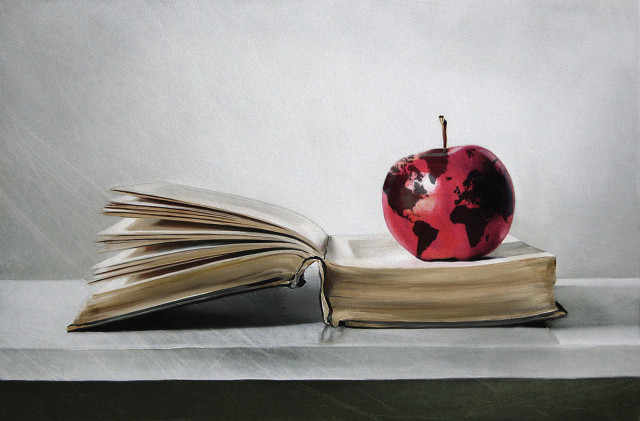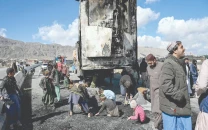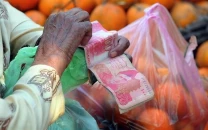The T factor
Teachers, architects of the future, play a vital role in the social, economic development, progress of the country.

The T factor
Teachers, the architects of the future, play a vital role in the social and economic development and progress of the country. It is said that teachers’ appreciation makes the world of education go around. They have always been an important part of any society or culture. However, their importance was formally recognised for the first time by United Nations Educational, Scientific and Cultural Organisation by honouring the teachers worldwide for their invaluable contributions on October 5, 1994. Since then every year students around the world commemorate this day to show their love and respect for their teachers.
As the world celebrates Teachers’ Day 2010, students pay tribute to all the teachers who have been affected directly or indirectly by major crises around the globe.
In Pakistan, on one hand the education setup and infrastructure have suffered gravely due to the floods of biblical proportions and on the other hand, the education system received another jolt as the Higher Education budget was drastically reduced, forcing teachers across the country to protest against a shameful act and demanded immediate reversal of the government decision.
Teachers who are the chosen mentors of the students bear great responsibility on their shoulders and they should be acknowledged and paid due homage. The current dilemma being no less than a disaster in its own right, mentioning mere floods would be an understatement. With the country reeling from recent natural disaster and surviving law and order situation, any plans to celebrate World Teachers’ Day seems murky, celebrations if any may not be with fervour. Ironically teachers find this a rallying point to unite and protest against this government action.
A survey revealed that the norms and values of the teaching profession in Pakistan have significantly changed over time. “I have been teaching since 35 years and have observed a big change in behaviours of students towards their teachers and without any doubt I can hold media responsible for this change. Neither are students keen to learn nor teachers are serious to teach,” says Mrs Nisar Fatima a secondary school teacher. “Young teachers these days try to indulge in boundless friendly relationship with their students due to which the teaching profession has lost its dignity and respect,” she added.
Teaching being the most prestigious profession once is gradually losing its prestige. The reasons can be a change in the general attitude, “professionalism” and reflecting changing global environment. In Pakistan, according to National Education Policy 2009, the teaching profession needs to be reformed due to the higher level of incompetency and penetration of malpractice. This negligence has certainly eroded the once dignified position enjoyed by teachers in our society. Teaching has become a money making profession rather than one’s zeal to teach. The boom of private schools and universities which pay a handsome salary to their teachers have destroyed the whole concept of uniformity in education, especially in Karachi. “The less-paid government school or public university teachers seem least interested in taking classes whereas, when they are paid well in private universities, they tend to give lectures regularly,” says Zahra Aamir, a student of Department of Business Administration, University of Karachi (KU).
However, for Shazaf Fatima Haider, a literature teacher at The Lyceum teaching is a delicate balancing act: where one needs to be approachable but distant, friendly but firm. “Teaching is a delicate art, I realise and appreciate the artists who moulded me and helped me become who I am. I appreciate my primary school teachers, who punished me and made me rebellious. I don't think I am terribly scarred by those experiences, although I would have preferred another, softer approach. I also thank the artists who honed me further and turned my rebellion into activism, a desire for positive action and whose ideals inspired me."
Another more significant and much older reason is the blatant and “criminal” practice of paid tuitions, which entice teachers to teach less in institutions and opt for more private tuitions after hours. Private tuitions is no more a means to help weak students improve in studies but a tax-free money making machine for abusing the students.
On a current tug between teachers and government on Higher Education Commission budget issue, Mrs Saadia Mehmood, professor Department of Mass Communication, KU says, “When we enter our educational institutions, we should leave behind the fact that our cars can break down at any given time because we do not have the resources to fix them,” she was displeased on the point, “we don’t want a day to celebrate, we only want the same working conditions as any dignified professional holds. Why do teachers even have to protest about the funds?” she added — an ironic plight of the status of this nation and the plagued thinking of those who run it.
Published in The Express Tribune, October 3rd, 2010.



















COMMENTS
Comments are moderated and generally will be posted if they are on-topic and not abusive.
For more information, please see our Comments FAQ